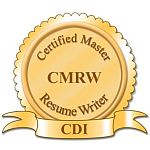(This is a long post, but hang with me …)
It’s unusual for our land line to ring much anymore. It’s more unusual for us to answer it. Most of our friends and family have made the transition to our cell numbers. I keep our “house phone” for ease and comfort during client intake consultations. Anymore, incoming calls on that line are telemarketers, and now, political pitches.

Photo by Koshyk via Flickr
When the phone rang at 6 o’clock on Friday night, prime telemarketing time, I almost didn’t answer. Something made me glance at the caller ID. The number was familiar, so I picked up. I’m so glad I did.
The call came from a resume client. We’d finished work on his resume at the end of March. He was calling to tell me he’d landed a job, in his target field, and started Monday – after only a month of searching with his new and improved resume. He went on to tell me, he’d given his new resume to a family member, who was able to get it in front of a hiring authority, landing him an interview. He networked, aced the interview, and starts his new job Monday. The main reason for the call; to thank me for helping launch his career. (WOW! How thoughtful and sweet.)
The back story …
The client, we’ll call him “Tom”, graduated with a bachelor’s in IT in December 2011, and also held an associate’s degree in the same field, earned in 2009. He’d been looking for a career-launching, entry-level IT position long before he graduated, and now, for several months after.
He’d been searching with a “typical”, cookie-cutter resume, carefully following all the “dinosaur-like” resume guidelines shared by university career resources, 20-years behinds the time.
(Read here and here how that could stymie a search before it ever gets started.)
He had a “me-centric” objective, a boring list of courses he’d taken, vague, generic mentions of an internship, and a large project, and an entry mentioning the job he’d held throughout his academic career – pizza delivery driver and cook. The information left the reader to determine value and figure out how what he had done could positively impact their organization.
He approached his job search with an “I’ll do anything IT” approach and was sending out resumes, willy-nilly hoping something would eventually stick. There was little focus or direction. I asked how frequently he was getting calls or interviewing. His response, as I presumed, “infrequently”; which is what lead him to me.
What I did …
After some coaching about the power of laser-sharp focus in a search, and the need to be able to articulate value in relation to targeted positions, he went off to do some next-step research: What specific position will help launch my career and get me on my desired career path?
He determined a help desk support technician was the first step. He provided three job postings representative of the position he sought. This served a two-fold purpose. After reading many postings, a common thread of valued skills emerges. This helped him identify careers stories in relation to potential employer needs. The postings also gave me key words most likely used to sort through hundreds of applications using an applicant tracking systems (ATS) They also helped me identify and tease out skills that spoke to his career target.
As I pulled his career story from him, I found out he was the “go-to” person for most of his family, friends, and acquaintances for all things IT. He frequently troubleshot hardware and software difficulties in person and over the phone. He’d also set up a large personal network, in a mansion, for a friend of a friend, through a referral.
He worked on myriad team projects in earning both his associate’s and his bachelor’s degrees. He’d landed an internship, giving him actual help desk experience. All of this great, value-conveying information was missing from his current resume presentation.
I created a bold headline and summarized what value he brought to the table. We put the focus on his hardware and software expertise and outlined the value he brought to internships, projects, and assignments. I also worked in a line about the pro bono family IT work and support provided. (A skill’s a skill whether you get paid for it or not.)
Rather than leaving the pizza parlor job hanging at the bottom of his document, listing job titles, driver and cook, I shared the story of how he’d worked there while earning both his degrees. I told how he became the go-to person for filling in and accepting additional shifts and was trusted to open and close the store for the manager. He also was the employee called on to resolve customer issues. A few lines about his growth and actions in this seven-year position conveyed a sound work ethic, reliability, and loyalty. Rather than painting a picture of pizza delivery driver, we conveyed his value as a solid, contributing member to a team … that happened to deliver pizzas.
During the process, I watched with pleasure as I saw his thinking shift from “I’m a student and pizza delivery driver who wants a job in IT,” to “I’m an IT professional, who happens to have recently graduated, and is delivering pizzas until I find the job that fits my current level of expertise.” He also saw how years of calming irate customers in the food industry would segue nicely into a help desk environment. (We all know food and computer issues can bring out the worst in people. As difficult as this might be to believe, even I get a little crabby when faced with “less than perfect” in either situation.)
The morale …
There are several lessons buried in this wonderful Friday night surprise.
- Never underestimate the power of a thank you. The fact that this young man took time out of his busy life to call and say thank you almost brought me tears. It’s a kind and wonderful gesture that won’t soon be forgotten. (What a marvelous addition to his brand.)
- Cookie-cutter doesn’t cut it. Looking like everyone else does nothing to support your unique value proposition or differentiate you from the rest of the pack. Without focus on a goal and company needs, you don’t know what part of your story to tell or how to tell it. Flopping information down on a sheet of paper and expecting the reader to extrapolate value in relation to their needs doesn’t work.
- Narrowing a search, as counterintuitive as it might sound, nets faster, more positive results. Six months in a search with “I’ll take anything” versus one month of “‘Katie bar the door’; I want to be a help desk technician” search speaks volumes.
- The power is in the presentation. Tom’s skill set did not change from the time he put together his own resume to the time we worked we together. What started landing him interviews was revamping the skills presentation. Frequently, it’s not the skills; it’s the presentation of those skills blocking job search success.
- Network. Network. Network. With a revamped presentation and narrow focus, Tom was able to approach his network, share a specific career goal, and get his resume in front of a hiring authority. The network was there before, but without his focus, they weren’t sure how to help him.
- Believe in yourself. If you view yourself as “just this” or “just that”, it’s nearly impossible to project your skill set, talents, and enthusiasm into a new and exciting position. If you don’t believe you can do it; don’t expect anyone else to believe you can do it either.
- Partner with a pro. If what you’re doing isn’t working, it might be time to enlist the help of someone who knows the market and what works. Frequently, job seekers don’t even know what they don’t know about job search today. Just because I have a scissors doesn’t mean I know how to cut hair. I look to a professional with the training, tools, and expertise to do the job right. A job seeker is wise to follow that same plan.
Tom launches an exciting new career Monday after only a month of focused searching. If focus can do that for a recent graduate, pizza delivery driver, with limited experience, imagine what it can do for you in your search.


























